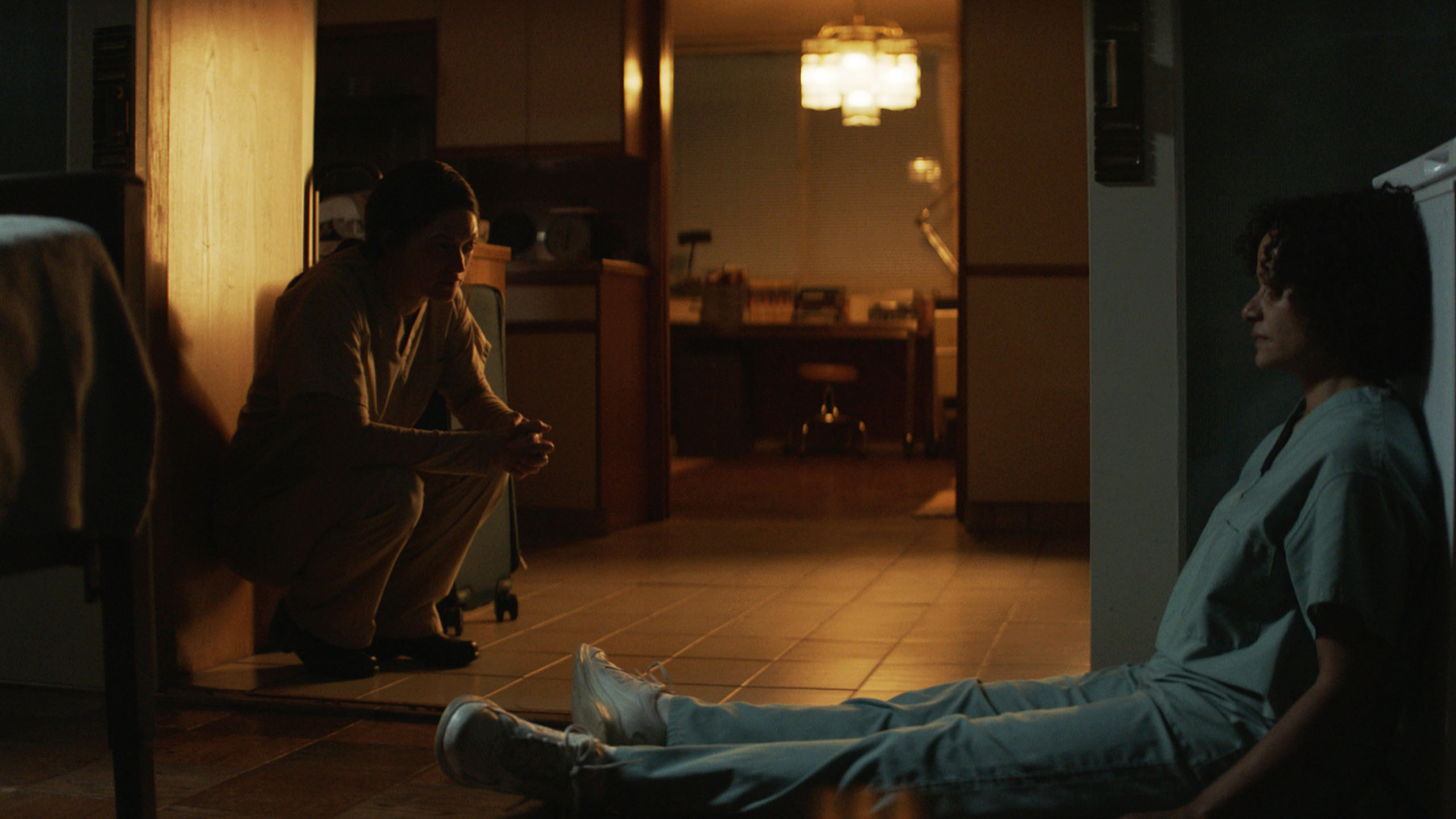The Sundance 2023 horror, birth/rebirth, directed by Laura Moss and co-written by Moss and Brendan J. O’Brien, is a modern-day Frankenstein but fresher, both in a literal and a film sense. It follows two women working at the same hospital whose worlds collide after a tragedy. As such, birth/rebirth navigates death, grief, and the lengths people go to avoid the facts of life with a dynamic cast and suspenseful music, raising the tension to a fever pitch.
At the start of the film, audiences see from the point of view of a pregnant woman in an ambulance. She doesn’t last long. After undergoing a cesarean in the hospital, she passes away. The focus shifts to two women at the hospital; Celia (Judy Reyes), a nurse, and Dr. Rose Caspar (Marin Ireland), a morgue technician. Celia cares for the deceased woman’s baby, and Rose processes the dead body, taking some parts home with her.
Rose quickly shows herself to be cold, clinical, and unlikeable. Yes, she works with dead bodies but in her free time, Rose jerks off a random man in a bar and collects his semen. This scene is strange but also funny, given Rose’s boredom during the act. Many women look bored during sexual encounters, but they don’t give the transactional abruptness of Rose.
In addition to semen, she collects a small blood sample and is good to go. Even stranger, she has blood bags in her fridge, which she uses as an IV for her pig. Yes, there’s a pig in her apartment. And yes, that semen comes into use later too. Birth/rebirth is clear about the type of person Rose is from the beginning, establishing her as a kind of feminine Dr. Frankenstein within a few scenes.
On the other hand, Celia’s whole life is her daughter, Lila (A.J. Lister). Here birth/rebirth uses a handful of moments to show Celia’s loving, close relationship with her six-year-old daughter. On a bus ride, Celia’s looking at her phone when her daughter adorably tells her a secret – that she needs attention. Later, as awareness of her daughter’s mortality grows, the terror of having missed the opportunity to say goodbye and “I love you” is unbearable.

Despite Rose’s frigid demeanor, she does not have a poker face when Celia arrives in the morgue to see her daughter. It’s a wonder Celia didn’t attack her then because every part of Rose screams guilty. Once she confronts her again at Rose’s car, and Rose flees that is the final strike for Celia. Instead of going to the police, she waits outside Rose’s apartment and rushes in when Rose tries to escape again.
What happens next is where birth/rebirth really takes off, rooting its fantastical tale in reality by exploring societal dynamics. Lila is reanimated after death, thanks to her now co-parents Celia and Rose. As the situation progresses, they’re uncertain if Lila is still Lila – what parts of her have healed, what remains, what is lost? Frankenstein’s creation arguably is only a monster because the creator did not put in the work to raise, teach, or guide them. Here Lila has Rose and Celia but the value of their examples and their experiment is unclear.
Rose is motivated by science, and Celia is driven to save her daughter. But is that enough to play God?
Judy Reyes brings anger, pain, and love to the role of Celia. Her phenomenal performances are unsurprising if you’ve seen her in Fear the Walking Dead. She’s just that good. One look from her conveys so much range, you ache for her. Celia’s a perfect foil for Rose’s less emotional, abrasive nature. Marin Ireland as Rose exudes a stony personality that leaves you uncomfortable each time she’s on screen. The question of what she is capable of always plays at the back of your mind. And A.J. Lister delivers a perfect contrast in her before-death and after-death performances. You want to hug one but give a wide berth to the other.
With its women-centered cast, birth/rebirth delivers something special, especially at a time when women face challenges to bodily autonomy. Each scene ratchets the tension, thanks to how director Moss underlines the performances with music that sounds like science and spirituality merged. The twist is not a shock but still delivers an “aha” moment, but the film does not need it to be impactful.
If you’re a fan of horror that’s more suspenseful and tackles heavier subjects, then birth/rebirth is one to watch and rewatch. It’s got this chilling quality that nestles under the flesh but does not strive for abject terror, although there’s plenty of gore, depth, and eerieness packaged into its 98-minute runtime. Light on jumps, birth/rebirth delivers a thoughtful, horrifying truth about women’s bodies, rights, and autonomy in a creepy tale of reanimation.

